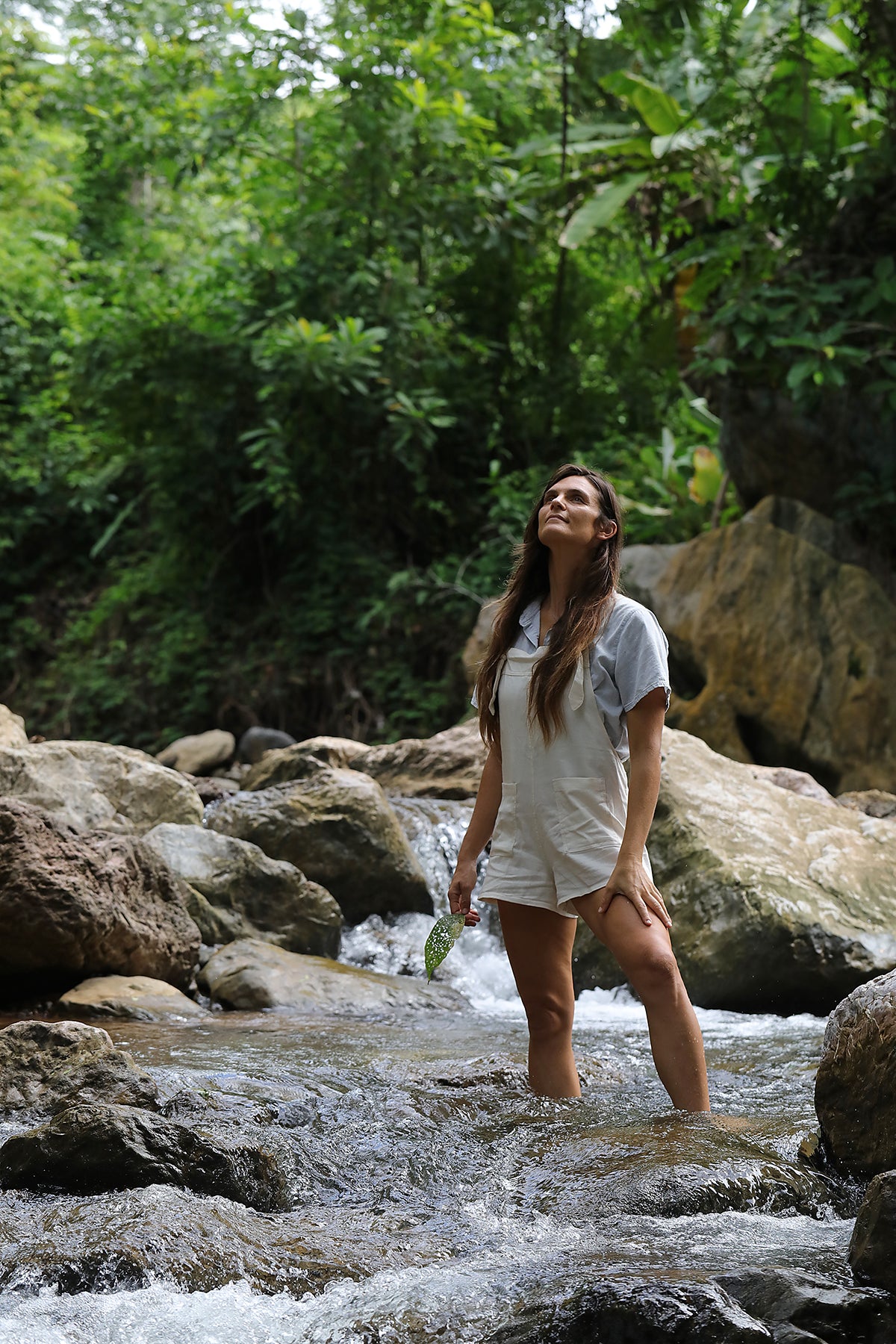What is Ayurveda?
Ayurveda is a health science originating in India whose purpose is to maintain health, heal and give life longevity. Many scholars say that Ayurveda is the oldest system of medicine in the world, having been practiced in India for over 5,000 years.
Ayurveda is a holistic system that defines life as the combination of body, mind and spirit. Ayurveda views individual life as a microcosm of the cosmos and offers a deep understanding of each person's body, mind and consciousness. This balance is the foundation of health and happiness.
In recent decades Ayurveda has had a great boom worldwide. And it is that now, its principles are more relevant than ever. Every year new investigations of modern science confirm the knowledge that Ayurveda has been teaching and practicing for thousands of years. New discoveries, such as the importance of the microbiota and intestinal health (how all the functions of our body are related to how we digest); circadian rhythms (how our body's biological clocks regulate all hormone, organ and tissue functions); neuro-plasticity (how our thoughts affect the way we see the external world and how this can be changed); the importance of deep nasal breathing to calm the nervous system and its relation to our energy levels… are some examples of basic Ayurvedic principles, now supported by modern science and currently trending.

Our unique constitution
Ayurveda explains how we are made of the same 5 elements with which the universe was created. At the moment of conception these elements have been combined in unique proportions, giving each of us our individuality. When we are conceived in the womb, no matter how that ratio is, we are in balance. But when we start to live, we suffer the effects of our lifestyle, diet, relationships, etc; which can create an imbalance.
The beauty of this principle is realizing that we can all find balance and flourish regardless of our constitution. This understanding allows us to accept and love ourselves as we are. It also allows us to understand that what is good for another person is not necessarily good for me and vice versa. In Ayurveda we don't talk about bad or good, but about incompatible.
"We can all find balance and flourish no matter our constitution."

The power of daily routines
Ayur means Life and Veda means Science. Therefore, Ayurveda is the science that studies Life. It gives us the guidelines and a series of simple daily routines that we can do to improve our lives, both physically and psychologically.
Although some of these routines seem simple, they are quite powerful, giving us significant results when we practice them on a daily basis. Ayurveda focuses on disease prevention and health maintenance, rather than just trying to cure symptoms. It explains that although healing is possible, it is much easier to stay healthy.
These effective daily routines bring us clarity and lightness. This lightness gives us the physical and mental energy that allows us to see the world in a different way.

Ayurveda is not about rigidity. It teaches us to be gentle with ourselves, as well as the importance of listening to our body and deeply nourishing each of our cells.
Some of the Ayurvedic principles may seem strange, especially since much of what Ayurveda teaches us is very different from what we have previously learned or are used to. However, when we pay attention, we will realize that all the answers are in nature, and we as human beings are not separated from these natural laws. Once we start to flow with the cycles of the natural world we achieve balance.
"Ayurveda focuses on the prevention of disease and the maintenance of health"

Ayurvedic food and nutrition
Every day I am more in love with the Ayurvedic principles of nutrition and the positive effects on our health that we obtain by implementing them.
But what is Ayurvedic nutrition and food? Although Ayurveda is in fashion lately, few people in this part of the world know what ayurvedic nutrition really is and how to easily implement it in our daily lives.
Many of us have heard the famous phrase "we are what we eat" however, Ayurveda goes further and tells us "we are what we digest" .
Ayurveda teaches us how we can improve our digestion, maximizing cellular absorption of nutrients and reducing toxins.

In Ayurveda, toxins are called "Ama" . These toxins are particles of undigested or partially digested substances that circulate in our body. Naturally, our lymphatic system is responsible for destroying these particles and discarding them through the body's cleansing channels, however, in our modern lifestyle, we are exposed to such a large amount of toxins that our lymphatic system, organs, and cleansing channels become clogged. This compromises their functioning. According to Ayurveda this is one of the main causes of disease. It is for this reason that Ayurveda focuses on how to improve digestion as well as how to optimize the function of our lymphatic system, which affects all other systems in the body.
My teacher always says that Ayurvedic food is the most delicious in the world and after changing my way of eating gradually incorporating his advice for the last 2 years I totally agree with him. Ayurvedic cooking and eating not only tastes good, but gives us a feeling of lightness, contentment, calmness and fills us with energy.
Many of us have heard the famous phrase "we are what we eat" however, Ayurveda goes further and tells us "we are what we digest".

Myths
Some believe that because Ayurveda originates from India, eating Ayurvedic food is eating Indian food, but this is incorrect. Indian food is not Ayurvedic food.
We can apply the principles of Ayurvedic nutrition when preparing and eating any type of food, be it Costa Rican, Italian, American, French, etc.
Another myth of Ayurvedic food is that it is vegetarian. Although it is true that Ayurveda recommends a predominantly vegetarian diet, it also teaches us what people who like to eat meat or other animal products can do to improve their digestion.
Would you like to learn more about Ayurveda?
Book a consultation to get an Ayurvedic analysis and an individualized plan with simple daily routines and lifestyle recommendations you can implement in your day to day.
I offer consultations in the Pavones area, in the south Pacific of Costa Rica in your own home, hotel or accommodation. If you are in another area of Costa Rica we can coordinate an online consultation by Zoom.
